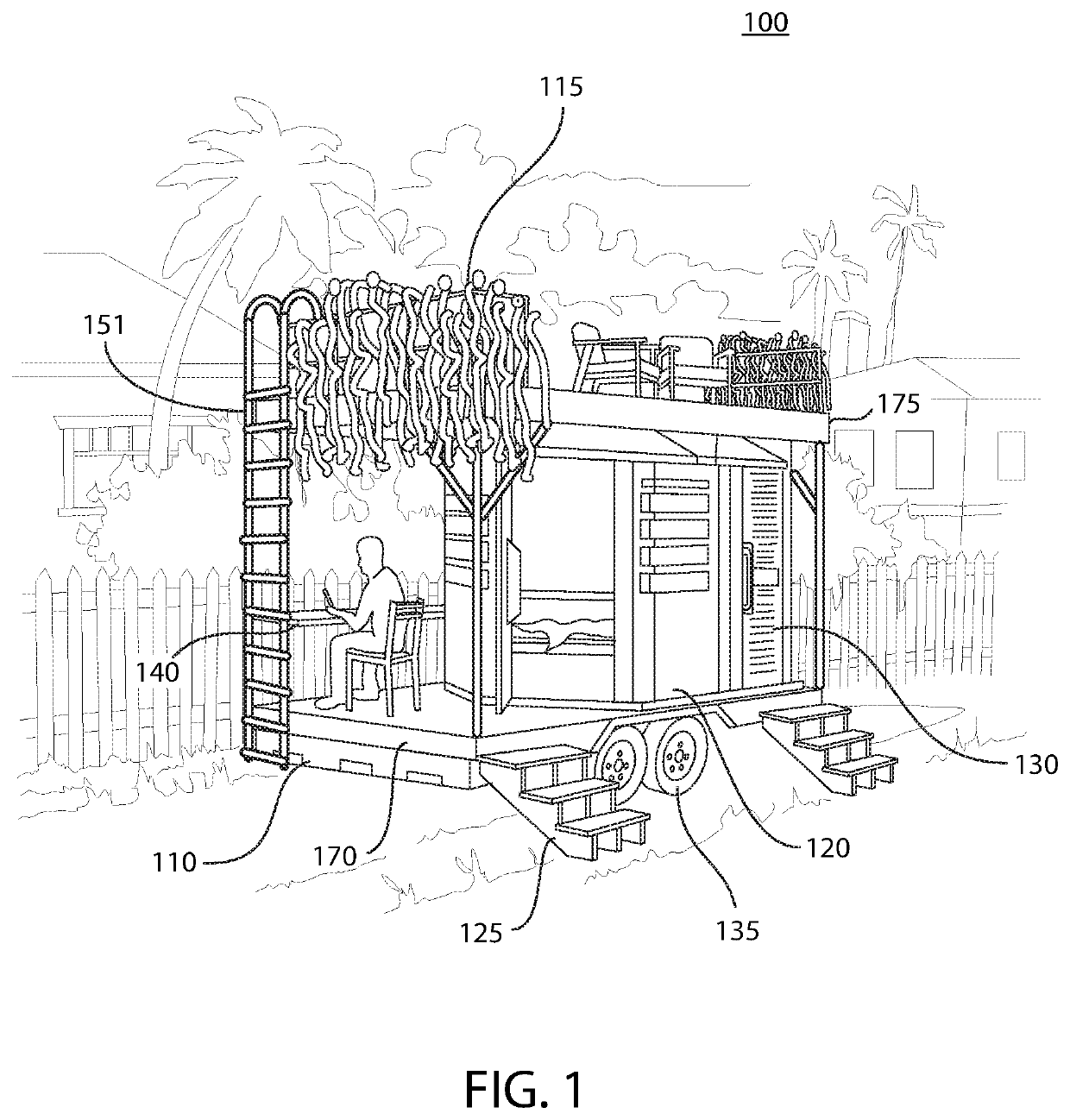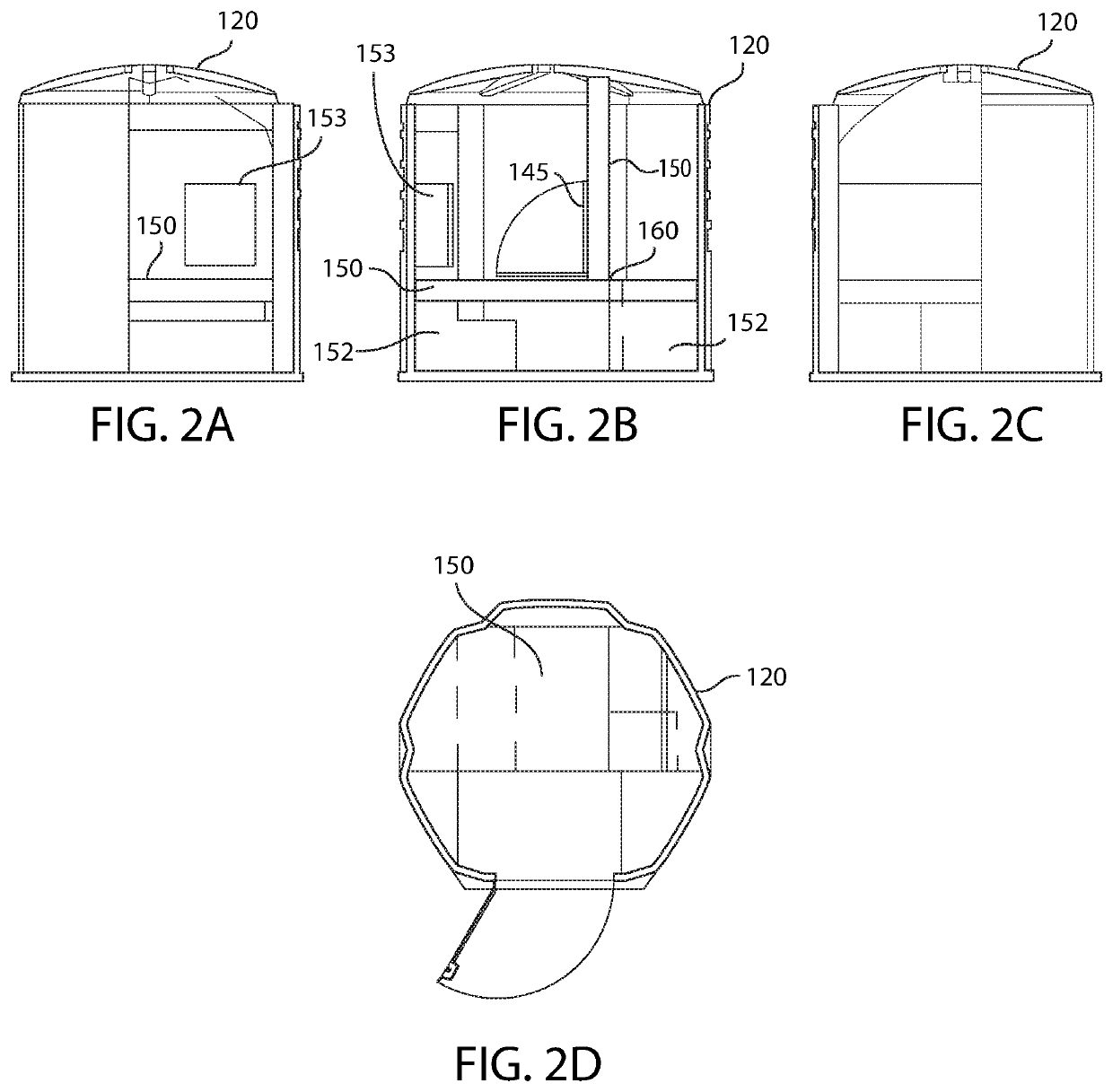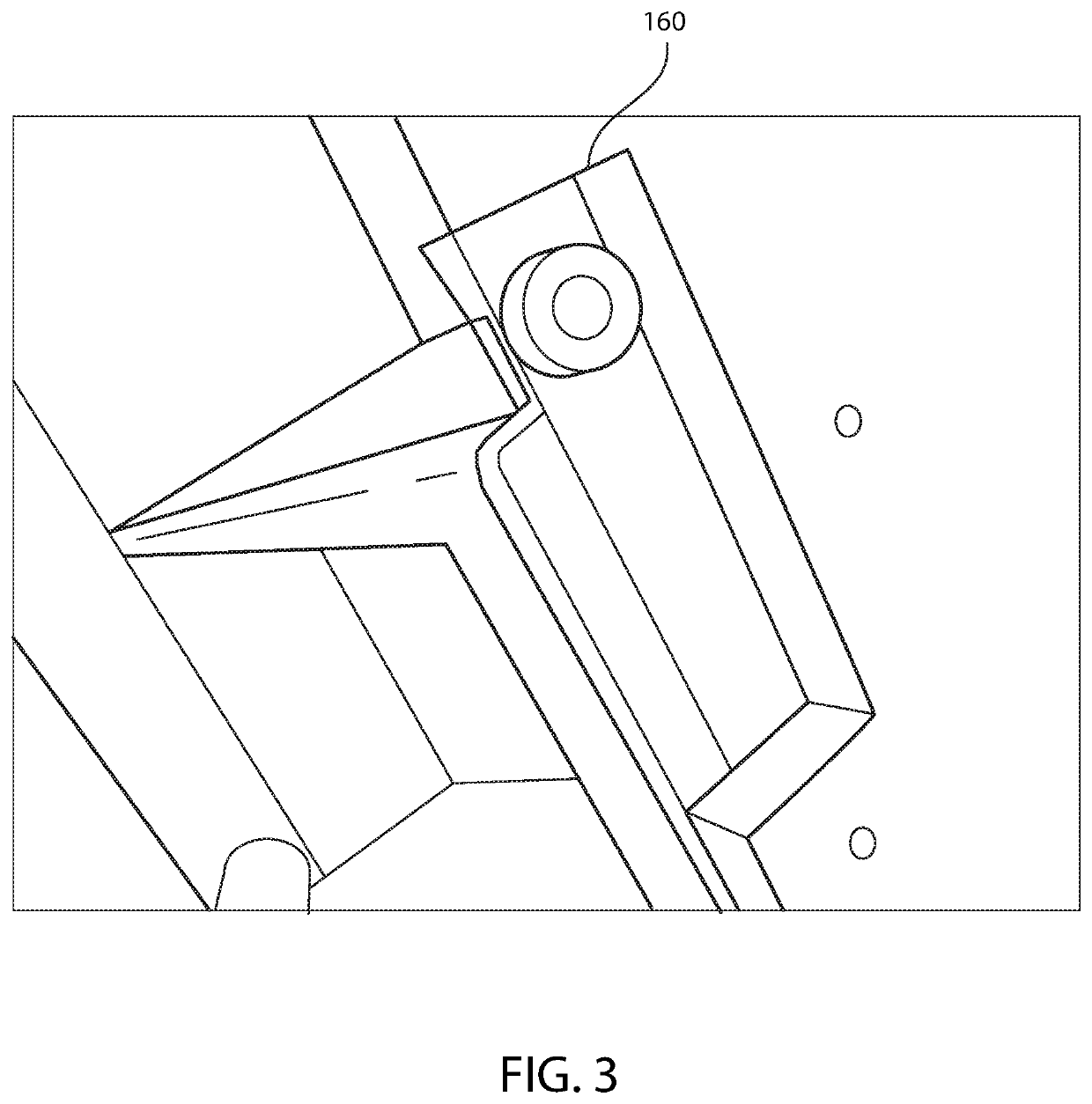Portable living structure and assembly
a living structure and portable technology, applied in sustainable buildings, water supply installations, pv power plants, etc., can solve the problems of low-income city dwellers with a dwindling amount of affordable housing options, economic homeless have little hope of re-entering the rental market, and mobile alternatives are either too expensive or too expensive, and achieve low-impact effects
- Summary
- Abstract
- Description
- Claims
- Application Information
AI Technical Summary
Benefits of technology
Problems solved by technology
Method used
Image
Examples
Embodiment Construction
[0011]Embodiment 1. A self-contained mobile living comprising:
[0012]a trailer;
[0013]a bedroom and living structure;
[0014]a portable restroom;
[0015]a rooftop trellis;
[0016]a water utility system; and
[0017]a gray water system;
[0018]wherein the bedroom and living structure, the restroom, and the rooftop trellis are placed on top of the trailer in a functional arrangement,
[0019]wherein the trailer comprises (i) at least a step to allow an occupant to step up to the trailer, (ii) at least one set of wheels to move the trailer, (iii) a pallet placed on a surface of the
[0020]trailer that supports the bedroom and living structure, the portable restroom, and the rooftop trellis, and (iv) at least one outdoor desk, and
[0021]wherein the rooftop trellis comprises (i) at least one pillar that is configured to connect the rooftop trellis to the trailer, (ii) a ladder that connects the trailer to the rooftop trellis as to allow the occupant to climb up to the rooftop trellis from the trailer, and ...
PUM
 Login to View More
Login to View More Abstract
Description
Claims
Application Information
 Login to View More
Login to View More - R&D
- Intellectual Property
- Life Sciences
- Materials
- Tech Scout
- Unparalleled Data Quality
- Higher Quality Content
- 60% Fewer Hallucinations
Browse by: Latest US Patents, China's latest patents, Technical Efficacy Thesaurus, Application Domain, Technology Topic, Popular Technical Reports.
© 2025 PatSnap. All rights reserved.Legal|Privacy policy|Modern Slavery Act Transparency Statement|Sitemap|About US| Contact US: help@patsnap.com



